Interview conducted by Cindy Klauss & Diane Hopkins, All Rights Reserved
Back to Previous Page | Next
Cindy: Finding Bruce Willis must have made you feel a little like Christopher Columbus. What did you see that made you know he would achieve the success that he has?
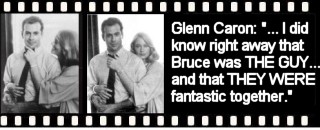 Glenn: I don't know. I just knew. We saw 3000. I didn't see 3000 guys. The casting people saw 3000 guys; I saw about 300. He came in. He had a short haircut. He was all punked out and everything. He had all these earrings. And I just ... he opened his mouth. First of all, like I say, he could do it. And there were only 3 guys who auditioned out of all those guys that I saw who could do it; who could handle the language. But the other two guys made no sense next to Cybill at that moment in their lives. Both have gone on to have huge careers, by the way. But Bruce was the only one in my mind who made sense next to Cybill. Interestingly, the network didn't get it at all. They kept looking at him and going, "He's not a leading man." But I just knew. There are things you know. You meet somebody and you know.
Glenn: I don't know. I just knew. We saw 3000. I didn't see 3000 guys. The casting people saw 3000 guys; I saw about 300. He came in. He had a short haircut. He was all punked out and everything. He had all these earrings. And I just ... he opened his mouth. First of all, like I say, he could do it. And there were only 3 guys who auditioned out of all those guys that I saw who could do it; who could handle the language. But the other two guys made no sense next to Cybill at that moment in their lives. Both have gone on to have huge careers, by the way. But Bruce was the only one in my mind who made sense next to Cybill. Interestingly, the network didn't get it at all. They kept looking at him and going, "He's not a leading man." But I just knew. There are things you know. You meet somebody and you know.
I had the same experience with Michael Keaton. I just instantly knew that I would have a great relationship with him and that I could write for him and that I could get him to do things that no one had asked him to do. It just happens. There are other actors I've had that with...you get a sense. But, literally, I suppose it's overstatement to say the minute he walked in, but the minute I heard him read, I just went, "Wow that's the guy". And not only that, I knew fairly early on that he had the talent to be somebody. I remember saying to him very early on -- he was a guy who was not comfortable with the celebrity initially, at all. Because he loves...he's a guy who loves life, he loves to live life. And to do that you can't always have people looking over your shoulder. And in Southern California, when you make a television show, you know you've got the tabloids. You've got the entertainment industry press. You've got a lot of people watching. He was very uncomfortable. And so I actually, fairly early on, apologized to him for having had a hand in making him famous, but I said to him, "You know, this is it." I said, "You're going to be doing this the rest of your life. You're that good". He looked at me like: "You are out of your mind". But I did have a sense very early on that...Having said that, I certainly didn't foresee Die Hard or any of that stuff. You know. I never saw him as an action hero. I mean, so, you know, we all have our blind spots. But, um, I must say I did know right away that Bruce was THE GUY and that he was, and THEY WERE, fantastic together. Go figure.
Cindy: Did Bruce Willis become David Addison, or did David Addison become Bruce Willis?
Glenn: Neither became the other. Bruce Willis is a guy from the East Coast, he's a terrific actor, and I always joke, I call him a 'closet intellectual'; he's a voracious reader. A very serious guy in many ways. David Addison is an extraordinarily optimistic, romantic knucklehead that Bruce played on a television show. They have nothing to do with each other, other than they look very much alike. But, Bruce is an actor. He's no more David Addison than he is that guy in Pulp Fiction. Or the guy trapped in the skyscraper in Die Hard. Yeah, I don't think either one became the other one.
Cindy: What about Glenn Gordon Caron, is he part of David Addison?
Glenn: Um, I don't think so. I mean, others have asked me that; I don't think so. I mean I think...my wife jokes that there are parts of me, but you know, I've certainly led a very different life. I mean, I'm much more similar to Bruce than I am to David Addison. This is probably not helpful at all to you, but no, I mean David Addison is just a guy I thought up. He just cracks me up. And certainly, there are parts of me in him and parts of Bruce in him, but you know, he's a guy, he's a character. Just like the character in, you know, Clean and Sober or the people in Now and Again, or you know, was Jennifer Aniston playing me in Picture Perfect? I don't think so.
Cindy: Music is such an integral part of many Moonlighting episodes. How much of that input came from you - song choices, themes?
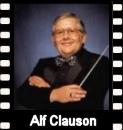 Glenn: Almost all of it. I'll say that without embarrassment, cause it's true. I'm sure along the way there were people who made really good suggestions; I can't remember who they are, or what they are. But in the main, I was just extraordinarily involved in the music from the very beginning. All of it. Even to the point of, Alf Clauson, who's a great composer; and has been doing The Simpsons pretty much since it's been on the air, which is a show which has incredibly funny and witty music of all genres, composed most of the music for the episodes of Moonlighting. But he will tell you, I would sit there and hum the stuff to him. I would say, "Do this, oomma, you know; I'm just...it's just how I think. It's a very important part to this day of the other shows I've done and the movies I do, I just love music. It's a really important part of it. And back then, it was not an easy thing to clear music for television shows. That was a big opus. With the exception of Miami Vice, which was using new music, we were using old music or preexisting music …..it just wasn't done. In fact, one of the reasons that it's been so difficult getting the shows onto VHS and DVD for people is all the music clearances. That was the big problem. You know, we featured so much of that music.
Glenn: Almost all of it. I'll say that without embarrassment, cause it's true. I'm sure along the way there were people who made really good suggestions; I can't remember who they are, or what they are. But in the main, I was just extraordinarily involved in the music from the very beginning. All of it. Even to the point of, Alf Clauson, who's a great composer; and has been doing The Simpsons pretty much since it's been on the air, which is a show which has incredibly funny and witty music of all genres, composed most of the music for the episodes of Moonlighting. But he will tell you, I would sit there and hum the stuff to him. I would say, "Do this, oomma, you know; I'm just...it's just how I think. It's a very important part to this day of the other shows I've done and the movies I do, I just love music. It's a really important part of it. And back then, it was not an easy thing to clear music for television shows. That was a big opus. With the exception of Miami Vice, which was using new music, we were using old music or preexisting music …..it just wasn't done. In fact, one of the reasons that it's been so difficult getting the shows onto VHS and DVD for people is all the music clearances. That was the big problem. You know, we featured so much of that music.
Cindy: Dancing is used in many Moonlighting episodes. Many writers seem to use dancing as surrogate sex. Do you agree? Is that what you were doing?
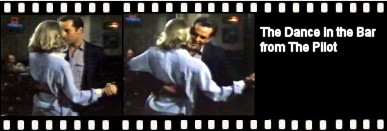
Glenn: Not knowingly. I might have used it as surrogate romance, but not surrogate sex. I mean, I think dancing is implicitly romantic, and I think it's implicitly sexual. I just love dance. I mean, somebody pointed out to me; I did this movie Clean and Sober, and there's a big dancing scene between Michael Keaton and Kathy Baker and the song they danced to is Since I Fell, which also features prominently in Moonlighting...I mean, it's something I do, you know. When we did...when we were doing the pilot for Moonlighting, ABC asked us to put together a sort of coming attraction of it. And we did this thing, "Great Couples in History" -- talking about you know, Bonnie and Clyde - all these sort of knucklehead couples leading up to Maddie and David. One of the scenes that we used there was the scene where they danced in the bar. Whenever I do screen tests, I invariably try and do a dancing scene, two people dancing together. I don't know why or what it is. Plus you have the opportunity to get these two people very close together, you know, so you get the sense of how they work together. I mean, even in Fling, if you think about the scene we did for the screen test, them on the street, it might as well be a dance, you know. But, I do; I love dancing. Yeah, you know, I can't but I wish I could. One of my great thrills is knowing Stanley Donen; having done that one thing with him. I once spent a couple of days with Michael Kidd, one of the highlights of my life, one of the great choreographers. I just think dance is it, you know?
Diane: Are there Moonlighting episodes in your head that you never had the opportunity to make?
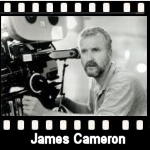 Glenn: Oh, sure. Absolutely, yeah. And there were things I wanted to do. I mean, less episodes than things I always meant to do but never got around to. I always wanted him to light a match on the edge of the screen. We bought the rights at one point to King Kong Vs Godzilla and we were going to matte Maddie and David into it. In fact, I spoke with James Cameron about directing it as an episode. We came very close to doing it, but shortly thereafter, I was 86'd off the show. We were going to do, and other people have done it since, but at the time, we were going to do a 3D episode. Things like that. Your question probably was more about things that you meant to do with characters. But for me, the characters live moment to moment, so I would discover what I was doing with them as I went. But I'll get around to everything eventually. If not with Maddie and David, then with somebody else.
Glenn: Oh, sure. Absolutely, yeah. And there were things I wanted to do. I mean, less episodes than things I always meant to do but never got around to. I always wanted him to light a match on the edge of the screen. We bought the rights at one point to King Kong Vs Godzilla and we were going to matte Maddie and David into it. In fact, I spoke with James Cameron about directing it as an episode. We came very close to doing it, but shortly thereafter, I was 86'd off the show. We were going to do, and other people have done it since, but at the time, we were going to do a 3D episode. Things like that. Your question probably was more about things that you meant to do with characters. But for me, the characters live moment to moment, so I would discover what I was doing with them as I went. But I'll get around to everything eventually. If not with Maddie and David, then with somebody else.
Cindy: A print article referred to Big Man on Mulberry Street as "extraordinary let's-preserve it-in-a-time-capsule TV". What episodes would you choose to put in a time capsule and why?
Glenn: I love Big Man on Mulberry Street; I love Atomic Shakespeare; I must mention, by the way, that Ron Osborn and Jeff Reno wrote Atomic Shakespeare and it's one of the few of the first 44 episodes that I pretty much didn't touch, you know, the script. They just did a sensational job; I think I might have tinkered with the last act, but it is 99% Ron and Jeff. And I love that episode.
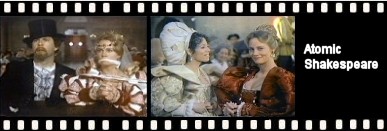
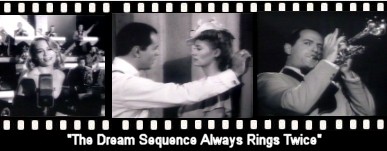
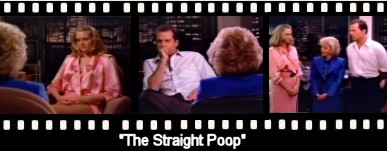
I love Dream Sequence; I love Straight Poop; I'm sure I'll leave some out. That early one with the disc jockey; I like that. With the two hearts beating monologue. You know who wrote that? Melinda Dillon, the actress. Yeah, she wrote that monologue. There's a bunch of them I love. You know you can never think of them when people ask. But I love the boxing show; I love Every Daughter's Father is a Virgin; I love it. Cybill's work is really good in that. I love Womb with a View. I love...a lot of them I love. There are some that I just despised, too. I mean, it needs to be said. There are some you just look at; I won't name what they are. But you look at and just think, "Holy Mackerel", and you knew it at the time, you'd say "I just can't make the darn thing float", you know? I just can't. Just the stuff isn't there, the film isn't there, the words aren't there; it happens, you know. And then, somebody will walk up to you and say that's their favorite...so, who knows, you know?
Blonde on Blonde a lot of people like. You know, a lot of those episodes too; I've got to mention Roger Director; who did like a humongous job and Chick Eglee. I'm sure I'm leaving somebody out.
Cindy: But I'm sure you wrote a lot of it.
Glenn: No, no, no ... they would write draft after draft after draft, and I would rewrite. But, you know, I wouldn't have gotten where I was if they hadn't done what they did, you know what I'm saying? You know another one that people don't mention that I like a lot. I like Brother, Can you Spare a Blonde. You know, which I wrote; Charlie Rocket played his brother and did a great job, but I'll tell you a deep, dark secret. I wrote it for David Lee Roth. And we really thought he was going to do it. Well, I just haven't really mentioned it in 15 years to anybody, but we were constantly calling and trying to get David to do the show, and we heard he was interested, but you never know; I mean those people are so deeply insulated.
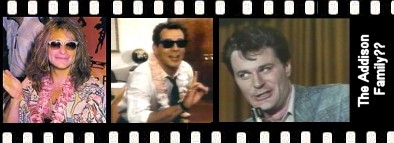
And we tried…I remember, we made a real effort to get Jerry Lewis to do the show. We just couldn't get Jerry; the timing never worked out; it was interesting. I'll tell you who came to me with a great idea for a show. Really wanted to do the show. And I couldn't get my act together to make it happen. Milton Berle came to me and wanted to do the Passover episode. And I was inclined to do it: to try and find a way to do that. I thought it was a hysterical idea; he wanted to play the Pharaoh. And I just thought, I had no idea how we'd do that or why they were there; how the Pharaoh came into it; it just cracked me up though, the idea of him with the thing. I thought we'd call it the Unleavened Episode or something. We didn't get to do it, so there you go.
Cindy: What is your personal favorite episode. Do you have one?
Glenn: Like I say, there's a bunch that I like, yeah. And probably not as much about the end. You see, you look at the end product and go, I love that episode. I can't come to it that way...I look at the end product, but I also remember the experience in making it.
Cindy: What experience do you remember in particular that you really enjoyed?
Glenn: I remember Shakespeare made an extraordinary experience. Probably, also the most expensive episode in television at that time and probably pro rata since. It was pretty nutty.
Diane: The guys were telling me last week about the historically correct costumes and the planning ahead to use the facilities.
Glenn: Yes, I was thoroughly out of my mind. There's no question. But that experience; I loved Big Man on Mulberry Street because Stanley Donen would come in and do this huge dance number with Bruce -- who had never danced, which I thought took extraordinary courage, and Sandahl Bergman, who is a fabulous dancer. Orson Welles. Having Orson Welles come. And then you know, he died shortly thereafter. And we had a lot of wonderful actors pass through -- Tim Robbins was in the first episode. And what's her name -- China Beach...Dana Delany. Whoopi Goldberg and Judd Nelson. That was a big deal at the time. It was pretty crazy.
Continue to next page-->>>>

